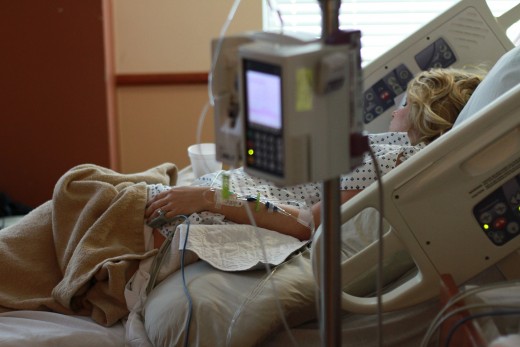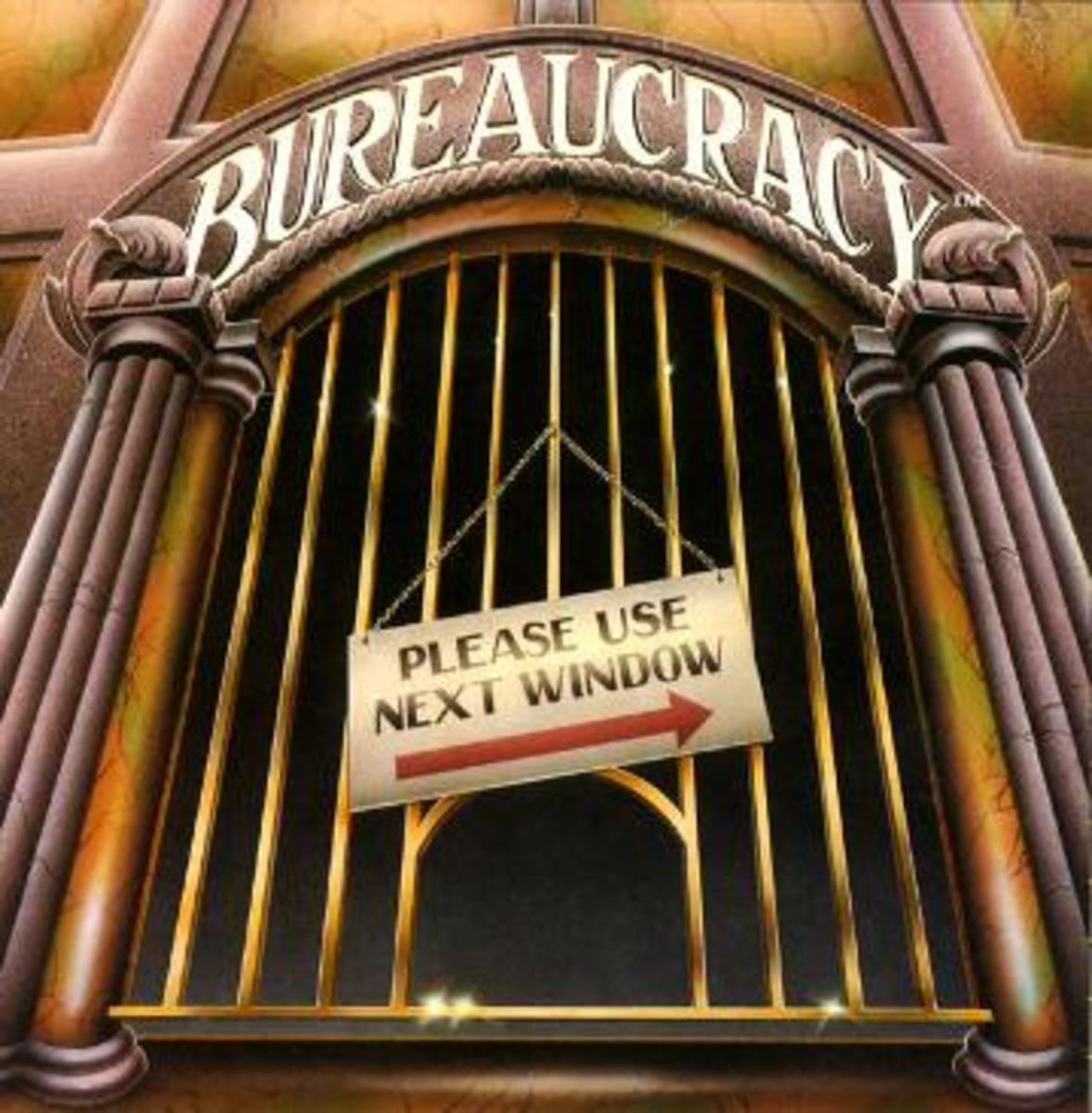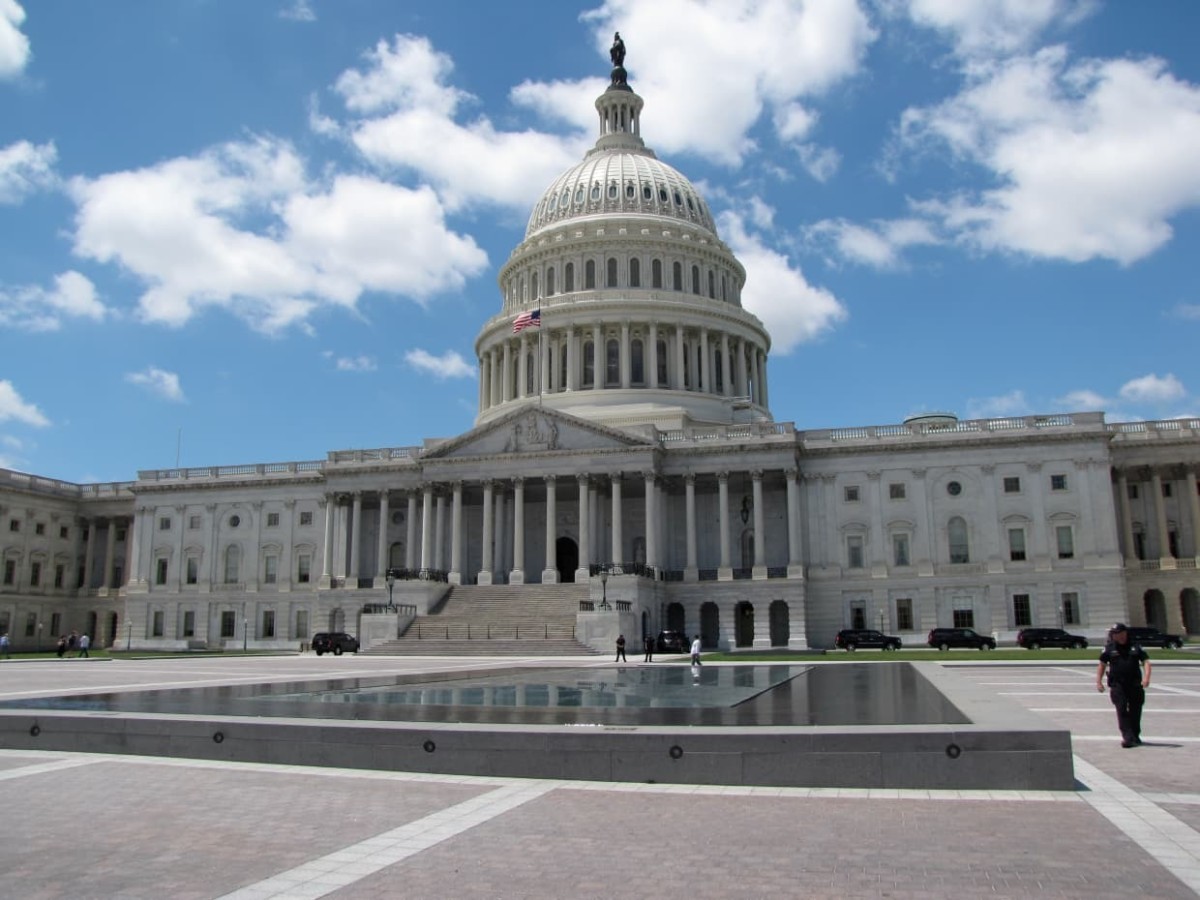What If Obamacare is Repealed?
The Debate Over Healthcare Isn't Over, Its Just Beginning
There would seem to be very few people that would stand idly by after an accident and watch as someone died without so much as lifting a hand in assistance. However, it would seem that beyond basic emergency care many partisan and personalities would deem even life sustaining medications and care as being only suited for those with medical insurance or unlimited financial resources. Though this writer stands more closely with conservatism in that the individual must and should take responsibility for oneself, I find that a more sane middle of the road approach would be better suited to the issue of medical care for all Americans, and world citizens.

History has shown that governments perform horribly in most tasks and that private enterprise and competition eek out and fertilize an atmosphere of growth and efficiency unparalleled by any form of government bureaucracy. However, the fundamental right to not only exist, but exist as a productive part of society with the least impact to the economy [local, national, and global](directly through impacts to the employer or to ones self in the case of self employed individuals) by maintaining or returning to health as quickly as possible anyone who may become ill concerns all of society. Look to recent events and the impacts of SARS and more recently the year 2003/2004 flu epidemics (though not officially designated as such)
Again, the US will jump forward to provide intervention and sometimes prevention to protect the society as a whole, but the individual (43 million of last figures) must endure the cost and expense of emergency and urgent care while often ignoring less urgent illnesses and injuries in hopes of self medicating themselves back to health due to the inability to pay even routine office visits. What's worse is even in the US where we supposedly have the best care in the world, it is not uncommon for an emergency room visit to not only cost thousands of dollars, but take as little as four hours and this writer has experienced even as much as twelve hours to complete the whole process.
As a conservative, I do not applaud any effort by the government to provide the same inefficient medical care that I experienced growing up in military medical facilities nor the same I received while on active and in the guard and reserves. Free is good and you put up with what you have to, but all but war time and trauma center emergency rooms, the efficiencies are not there in the civilian sector and are much worse in the government sector. Just survey any number of veterans putting up with the care in the veterans hospitals. True there has been leaps and bounds in these facilities, but the government is a big ship that can't easily head for warmer waters and evade the icebergs.

If the current private sector mishmash of insurance being provided by employers (which since the dot com crash of 2001 has increasingly offloaded the costs of such plans to those covered), high cost coverage for small business, and the unending barrage of garbage discount plans (that cost next to nothing, and provides next to nothing), and if socializing health care to a failure state of the Canadians and the UK, then what is the answer?
It is the belief of this writer that one must bring together those with the most to gain in all areas affected to ferret out a solution. I have done just that in the proposal following this additional information and structuring. One must see how the economy is affected by the removal of any one person, either temporarily through sickness or injury, or permanently through permanent incapacitation or death.
From a government stand point, anyone not working costs them (or us as it should be) the tax revenues not being generated. If one has no sick leave or vacation time to use to compensate for time out from work, or no insurance to compensate for lost revenues of the small business person, this directly reduces the taxes paid on these incomes, and potentially reduces adjusted gross income to drop their overall tax bracket reducing the whole years tax revenues from that citizen. Thusly the government should want not only healthy productive citizens, but should want them to be so for as long as possible to maximize the ROI. Social Security may counter this value of long life, but that is another topic for another time. Even with the dole out of funds from the SSA, these funds help to pump dollars into the economies.

It should be a "no brain-er" that the citizen would reap value in quality of life, increased assets for personal enjoyment or increased personal investments, reduced stigmata and denigration of self-worth derived from forced medical and personal bankruptcies, and the expedited return to health by getting appropriate diagnosis and treatment instead of self guessing and medicating from over-the-counter medications, or worse, borrowed or stolen medications from others.
The largest opponents to providing "no-cost " care to all citizens are those who reap the rewards of maintaining the status quo; pharmaceutical companies, drugstore chains, and some medical care professionals. First the medical care professionals shouldn't care where their paychecks come from as long as it's legal and not immoral (more on this later). The other two industries....tough cookies I say as my forthcoming proposal shall reveal. Oh no, if we radically change things innovation will die and new medicines won't come to market...blah blah blah...not likely.
Here we go: It is paramount to create a paradigm shift in this and all other countries to change the way business and societies look at the whole money machine. Put it into business terms; What is the ROI (Return on Investment). Each person in the world represents an economy of one. Each of us consumes commodities - food, gas, etc. through the course of our lives. Some of the largest companies in the US and world are those that depend heavily on consumers; Proctor and Gamble et al. If these companies were to place a yearly, daily, value on each life in the world, what it represents in potential profit, it would soon become apparent that private businesses would profit by not only covering their customers health care needs, but could create lifetime customers by doing so.
In a rough draft it would look like this. Consumption based businesses would acquire the pharmaceutical companies and drug store chains under the scrutiny of the government regulatory agencies. If "LIFE" becomes paramount in the equation, then the longer and healthier lives their customers have, the more they can consume, the larger per person consumption, the larger the profits. Customer loyalty would not only be based on products, but by the health care and new innovative medical processes to improve the quality and length of life afforded to the customer. Instead of points for discounts, vacations, and gifts, customer loyalty programs would be for medical care points.
This model provides big business reasons beyond the social expectation that to keep face, one must be a good social citizen to increase good will, but also covers the personality types that are only motivated by profit. As this paradigm shift begins, all products will have the potential to shift from punitive retribution suits due to defective and rushed products to ROI of providing the products least likely to impair the potential profits of one lost consumer.

The hospitals and doctors, if "owned" by private businesses, not just in a profit business ventures in of themselves, could offset the need of turning a profit causing them to sacrifice care for assembly line healthcare efficiencies. Private companies should want to balance the expeditious care and return to health with any repeat or chronic illness that could further reduce "profitability of a fully functioning citizen.
Though not complete in plugging all the holes naysayers will throw my direction after having put forth this concept, if successful this approach could remove pharmaceutical incentives to medical practitioners to simply throw medications at patients in lieu of full diagnosis or alternative or more appropriate medications or treatments due to the temptation of making more money from the drug companies. This can be further removed by providing no cost (eliminating the student loans) education to those who have shown through the testing process to have the ability and desire to be medical practitioners. Without loans, and without pharmaceutical incentives, the right choice can be made more often in the best interest of the consumer.
The liberals who claim their desire is that no one go without medical care should find this tact to meet that end without increasing taxes, without creating a larger governmental medical complex, and without the archenemy of a constitutional republic, socialism or worse yet communism. Conservatives, should equally find this approach desirable if they truly want lower or not higher taxes, smaller government, and reduced deficit spending.
Unfortunately the liberal socialists succeeded in passing Obamacare, and there will be ongoing fights over its constitutionality, repeal or reformation in the years to come. One can only hope that the raging debate will include out of the box brainstorming that will have the needed pieces to provide a truly sensible and revolutionary way to streamline the healthcare system without compromising care or future fiscal resources of our country. My hope is the idea presented here if not the ultimate answer, may inspire you to consider that there are options beyond what has been, and what has been thrust upon us.
© 2018 Potterville








